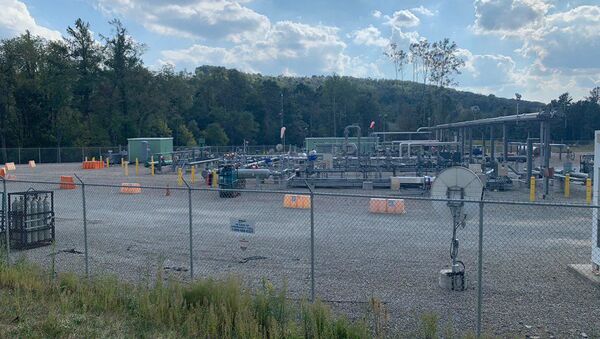Stewart, now 19, found out that she had Hodgkin’s lymphoma at age 16. After finishing chemotherapy, she heard that her former grade-school classmate Lipscomb, also now 19, had just been diagnosed with the same extremely rare disease.
Because only about 8,000 cases of Hodgkin’s are diagnosed in the United States each year, both girls found it odd that cancer could afflict two kids at the Fort Cherry Elementary School in the small town of McDonald, Pennsylvania, which has a population of only around 2,000 people.
"I remember that specific time. I finished chemotherapy, my one friend’s mom passed away and then Grace got diagnosed with cancer all in the same week. We were like ‘what’s going on? This is not good!’" Stewart said.
Stewart and Lipscomb are not alone. Since 2008, at least 67 cases of childhood cancers, many of them rare, have been documented in their home county of Washington and the neighbouring counties of Greene, Fayette and Westmoreland.
Such uncanny coincidences have led many residents of these rural communities to question whether something in the environment is making children sick. Many residents of their town and nearby rural communities southwest of Pittsburgh are concerned that the fracking industry, which has exploded in the area since 2008, could be causing such illnesses.
"It's so weird, since we lived in the same town. I know there was another kid who was a couple years older than us who got cancer a few years before we did", Lipscomb noted.
Lipscomb was told she had Hodgkin’s just two years after her own mother had been diagnosed with a rare, non-genetic breast cancer.
"It's all happening in the same school district. There's also a lot of people who have asthma in our school district too", she said.
What's Going on?
Hydraulic fracturing is a highly volatile process in which a toxic mix of chemicals is injected at high pressure into the earth to break up rocks and extract the natural gas trapped inside. The process produces waste that includes multiple substances that are known to be harmful to human health, including benzene, toluene, xylene and ethylbenzene.
Washington County now has nearly 1,200 active fracking wells, and production here has helped transform Pennsylvania into the nation’s No. 2 natural gas state. But Pennsylvania’s Department of Environmental Protection has documented more than 4,000 fracking violations in Washington County, including failure to properly dispose of residual waste and pollution, hazardous well venting and pollution of local waters with toxic substances.
"They’re fracking so much around the Pittsburgh area, not even just specifically McDonald or specifically Cannonsburg, but they’re like literally surrounding us", Stewart said, adding that she would not be surprised if the practice was to blame for the apparent spike in childhood cancers.
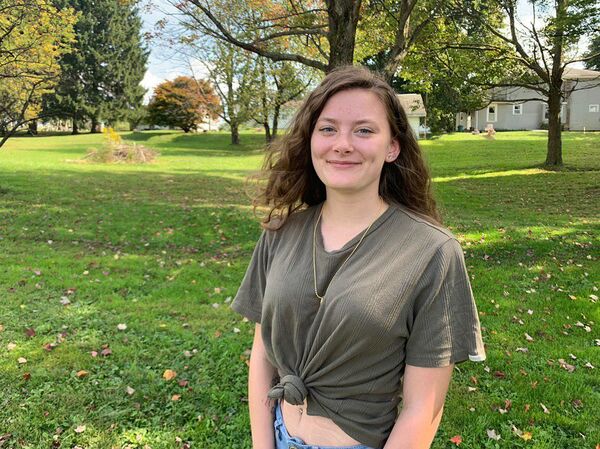
Indeed, the Fort Cherry Elementary School is surrounded by fracking wells, and several of them sit on a hillside directly adjacent to the school.
Stewart, who grew up in a home just across the street from the school, recalled that at nighttime she could see the flaring flames from the wells flickering in the darkness.
"I remember they were fracking directly across from the high school, like literally", she said.
In response to public health concerns from local residents, Range Resources, a natural gas exploration company that operates a number of shale gas wells near the Fort Cherry High School, commissioned the Boston-based environmental risk consulting firm Gradient to conduct a two-year study on the public health impact from the wells. The Gradient report, published in May, concluded that Range Resources-operated shale gas wells did not pose public health concerns to the community or the school.
"Our air quality and public health evaluation of December 2016 to October 2018 ambient air quality data collected at three sites in proximity to the Yonker well pad in Mount Pleasant Township showed that measured PM2.5 [Particulate Matter] and VOC [Volatile Organic Compounds] concentrations were consistently below health-based air comparison values and thus are not expected to pose acute or chronic health concerns", the report said.
But Stewart is not completely convinced that the fracking operations had no impact on her conditions and those of other children who were diagnosed with cancer in the neighbouring areas.
"I’m more curious to find out if there was an environmental impact more than anything else. It doesn’t make sense why so many people in that area are getting cancer … To have so many in one singular area, it just doesn’t seem right", she said.
A Lifelong Battle
Like other teenage high school students, Stewart had been dreaming about looking glamorous in her graduation pictures. Unfortunately, the sudden hair loss from chemotherapy disrupted all her plans.
"I went bald super fast. I was going to get early seniors’ pictures done, because my hair was so long and I loved it. And then I didn’t even make it to the weekend for one [photoshoot] was scheduled. I made the appointment for the pictures 1-2 days before my hair started falling out. It was with a family friend. I remember texting her two days later like ‘almost all of my hair is gone’", she said.
After more than four months of chemotherapy in 2017, Stewart’s lymphoma has been in remission for more than two years. But she still worries about the cancer treatment’s long term impact on her life, such as her chances of having a baby in the future.
"My biggest fear is the impact on fertility. That’s because when I was growing up, having a family was something I always wanted. … It’s just something in the future that’s important to me. I’d be super upset if I knew I had lost that opportunity", she said.
Lipscomb, who after undergoing chemotherapy and radiation is now also in remission, shares the same concerns that she could face fertility problems.
"I feel like I’ve always wanted to be a mom. … But there’s a good chance I might not be able to have kids", she said.
Lipscomb also worries that radiation treatment could cause other health issues such as thyroid problems.
"I had to get radiation and they had to zero in on like my throat and chest area. So the doctor told me that I’m probably going to have thyroid problems earlier than women usually do", she said.
Both Stewart and Lipscomb also fear the possibility that their cancers could come back.
"I don't want to be confident that it won’t come back, because then if it does I’ll be really mad, so the way that I deal with it is to assume that it’s going to come back … expectations are bad", Stewart said.
"You don't know what the future is going to bring, anything could happen. I like to stay positive," Lipscomb said.

Why Are Children Dying?
On 13 February, the local TV news channel WPXI aired a story that reported on multiple children in the Canon-McMillan School District in Washington County who had been diagnosed with Ewing’s sarcoma, an extremely rare childhood cancer that occurs in bones or soft tissues.
The exact cause of Ewing’s sarcoma, which is detected in only about 200 children in the United States each year, remains largely unknown, but the disease is not inherited, meaning that it is not passed down from a parent to a child.
After the TV report aired, the Pennsylvania State Department of Health started receiving phone calls from panicked residents who were concerned that their children were being exposed to toxic substances that had caused a cancer cluster in the area.
The area has a long legacy of pollution, as the town formerly housed a plant that processed radium and uranium. But annual tests carried out by the US Department of Energy have showed that radiation levels at the site have remained unchanged in recent years, meaning that it would be an unlikely cause of a sudden spike in childhood cancers.
"When the community reached out to us regarding their concerns about children diagnosed with the Ewing’s family of cancers in Washington County and Canon-McMillan School District, our epidemiologists did an investigation of cases from 2005-2017 using data from the nationally-recognized Pennsylvania Cancer Registry", state Health Department Press Secretary Nate Wardle said in a statement.
Physicians in Pennsylvania are required to report cases of cancer to the department using the registry.
"The department has conducted cancer incidence reviews in both Washington County in 2019 and Westmoreland County in 2018 in southwestern Pennsylvania", Wardle said.
The results of the investigation, which the department released on April 22, said "there were no conclusive findings indicating that the incidence rates of Ewing’s family of tumours in Washington County and Canon-McMillan School District for female and male populations were consistently and statistically significantly higher than the rest of the state over the time periods reviewed".
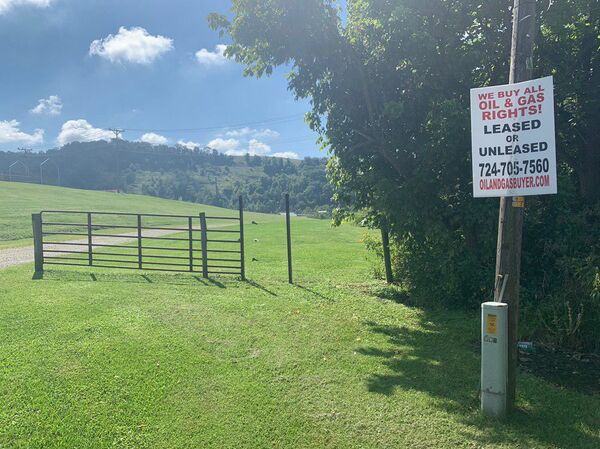
But since the report’s release, an investigation by the Pittsburgh Post-Gazette has counted 67 cases of cancer among children in Washington and the neighbouring Greene, Fayette and Westmoreland counties, including 27 cases of Ewing sarcoma, since 2008.
The Department of Health examined three of those Ewing cases in Canonsburg when it conducted its assessment, but three others, including two that were diagnosed last year, were not included, the Post-Gazette reported. In total, the Post-Gazette’s count includes 12 more cases of Ewing sarcoma than officials have so far studied.
As a result of such reports, the public’s fears have not yet been quelled, and state officials are still facing calls to further examine the matter. Wardle said the department would launch another investigation later this year.
"We are planning on conducting an additional review once 2018 data is available, but due to the time period to review and validate data, that review likely will not begin until the end of the year", Wardle said.
What Scientists Are Saying
The question of whether or not fracking is safe remains a hotly debated issue, and scientists around the state are still trying to better understand the practice’s potential impacts.
Dr Susan Brantley, distinguished professor of Geosciences and her fellow scientists at Pennsylvania State University said that water contamination from fracking appears to occur only very rarely across the state.
"What we see in the water quality data here in Pennsylvania is that there are some problems, and we've looked closely at those problems", Brantley noted. "The number of problems is relatively small compared to the number of shale gas wells".
Though several serious problems have been documented in Pennsylvania - such as natural gas and drilling fluids getting into people’s drinking water wells, fracking fluid spills or gas well explosions - incidents like these have occurred only very rarely, she added.
She cautioned, however, against downplaying the gravity of such isolated incidents.
"Every time there's an incident, you are talking about somebody's house or somebody's family, so it's really important to not look at it just as a statistic but to try to figure out what happened and make sure you can stop it", Brantley said.
She also noted that concerns over the potential health consequences of fracking are perhaps greater in Pennsylvania, where people on average tend to live closer to fracking well pads than they do in the southwest of the country.
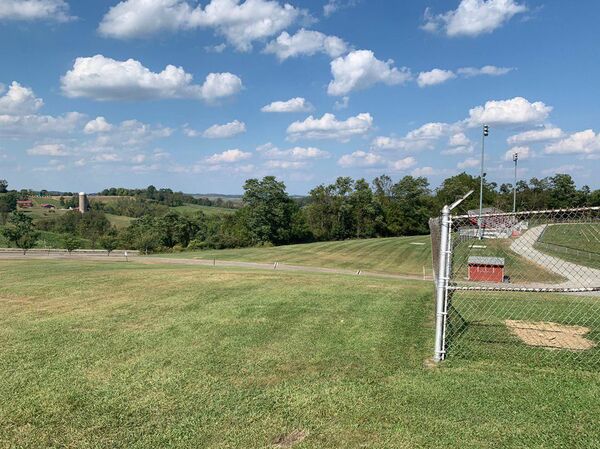
In Pennsylvania, some fracking facilities operate within 300 feet (92 meters) of people’s homes.
"That makes a difference in terms of the public outcry and the public response", Brantley said.
Water pollution is just one of several areas that scientists are studying. They are also examining whether fracking has caused air pollution, contributed to greenhouse gases that cause global warming or triggered earthquakes, for instance.
Two groups of doctors and medical workers in the neighbouring state of New York, the Concerned Health Professionals of New York and the Physicians for Social Responsibility, have over the last few years published an annual compendium of scientific studies and investigative news reports that they say demonstrates the risks and harms of fracking.
In June, they released the sixth edition of their Compendium of Scientific, Medical and Media Findings Demonstrating Risks and Harms of Fracking, which includes 1,778 studies.
"Our examination of the peer-reviewed medical, public health, biological, earth sciences and engineering literature uncovered no evidence that fracking can be practised in a manner that does not threaten human health", they wrote in a 361-page report.
The studies link fracking to a range of health impacts including asthma, respiratory problems, nosebleeds, neurological problems, high-risk pregnancies, birth defects and rare childhood cancers, among others.
But the industry’s supporters roundly reject those conclusions, saying the compendium relies on multiple studies that have been discredited, as well as reports by researchers with "questionable agendas" and links to the anti-fracking movement.
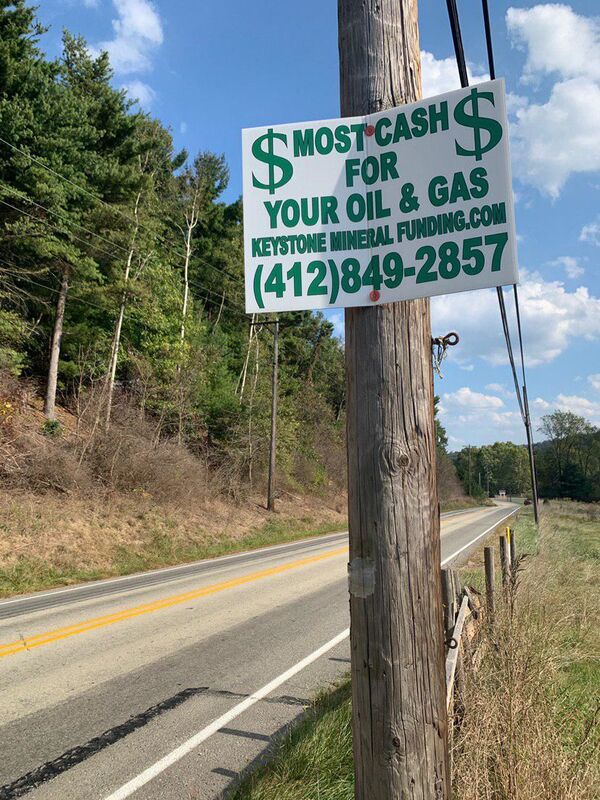
While they acknowledge that accidents can happen, the industry’s supporters point to a separate body of research that they say proves that fracking can be done safely when managed effectively.
For instance, they point to a June 2019 study by the Pennsylvania Department of Health and Colorado Department of Public Health and Environment which concluded that there is "insufficient weight of evidence" to link living near oil and gas operations with adverse health outcomes.
Both advocates and opponents of fracking say that science is on their side, and the public is largely relying on state officials to sift through the competing claims.
The Pennsylvania Department of Health’s own website captures much of the uncertainty of the science at the heart of the debate.
Unconventional oil and natural gas development (UONGD), which includes fracking, "may negatively impact water, air and soil quality", it says.
The website, citing a 2013 study of childhood cancer cases in Pennsylvania, also says:
"Although an early county-level study found no association between UONGD and children's cancer incidence in Pennsylvania, the effect of UONGD on cancer and cancer-related deaths is still unknown. In general, the latency period (the time lag between when exposure occurs and diagnosis) for cancer is at least a few years. Over the next several years, researchers will be able to more accurately study exposure to UONGD and cancer incidence as the latency periods are reached".
Activists Sound the Alarm
Environmental activists across the state are not comfortable with the idea of Pennsylvanians serving as test cases until the long-term results arrive.
Doug Shields, the Western Pennsylvania outreach liaison for the non-profit organization Food and Water Watch, says there is already enough evidence for Pennsylvania officials to halt fracking preventatively, as did the states of Vermont, New York and Maryland.
He noted that a study by Cornell University that examined more than 41,000 shale wells in Pennsylvania found that 5 percent of well casings, which protect groundwater and aquifers against fracking pollution, fail.
"I mean if you had a 5 percent failure rate on bridges or airplanes you wouldn't ride on them", Shields said.
Shields believes that leaders of the state failed to adequately study the potential impact that fracking could have on public health, the quality of life and the environment before opening its doors to the industry.
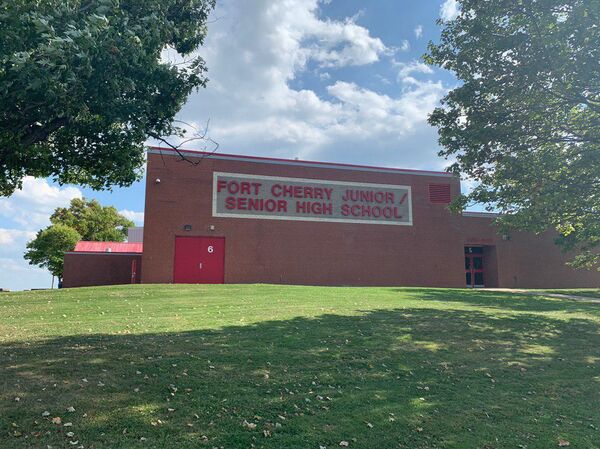
"They saw it as a way to pay their bills", he said, noting that the state’s most recent financial report shows total long-term liabilities at $63.8 billion.
"When the dollar supplants public safety and your analysis of what you're doing legislatively, you're in trouble", Shields said. "They're taking the short term money and not looking at the long term".
Food and Water Watch was among more than 100 groups who recently signed a letter to Governor Wolf calling for a fracking moratorium in the state.
The letter, also signed by more than 800 individuals, including five state representatives, urged Wolf to launch an investigation into reports of rare cancers and suspend all gas drilling permits until the probe proves that fracking is safe.
"This is a public health crisis that requires immediate and significant action", the signatories said.
Reid Porter, a spokesperson for the Associated Petroleum Industries noted that API of Pennsylvania, along with the Marcellus Shale Coalition and the PA Independent Oil and Gas Association, wrote their own letter to Governor Wolf on 23 July.
The three groups, which represent the fracking industry urged Wolf to ignore calls for a moratorium on fracking, accusing the Post-Gazette of "inaccurate" reporting and saying the paper "may support the agenda of anti-natural gas activists."
"We support Governor Wolf’s efforts for further, objective scientific research. Health and safety are priorities of this industry. We are committed to protecting the safety and health of our employees, our contractors and the people of the communities in which we operate", they wrote.
A spokesperson for the governor declined to provide comment on the public’s calls for a moratorium on fracking.
But in his 19 June response to the letter from activists and concerned citizens, Wolf wrote: "Pennsylvania’s natural gas development is providing economic benefits to the commonwealth. However, these benefits should not require a choice between them and public health or safety. It is essential that as we realize economic benefits, we ensure the public is protected – especially our children – and take the necessary steps to aggressively regulate resource development".
The governor acknowledged that further in-depth research into the potentially harmful effects of fracking is "warranted", but stopped short of heeding calls to temporarily stop issuing permits.
"We will continue to research and study the evidence from Pennsylvania, and closely monitor the academic literature as it develops elsewhere", he wrote. "We will continue to make decision guided by science, and we encourage the public to provide information to the Department of Health".
The Search for Answers
Both Stewart and Lipscomb, the two young ladies who battled Hodgkin’s lymphoma, have moved away from their hometown and are now students at Clarion University in Pennsylvania.
Though they face a lifetime of monitoring and the possibility of remission, the two say they are grateful that their personal battles with cancer have taught them an appreciation for life that they would not otherwise have.
"It showed me the compassion that other people have, the solidarity that people can show, even to complete strangers", Lipscomb said.
She recalled that when she was undergoing chemotherapy and had lost her hair, a woman and her daughter stopped her in a public place to inquire whether she had cancer – and then asked if they could hold hands and pray with her.
"When you’re sick you start to over-appreciate things almost, like the smallest things that you would normally take for granted", Stewart said. "Personally, for me being healthy again, I’ll catch myself not appreciating things anymore, and I’ll tell myself to stop it".
Lipscomb echoed the same sentiment, saying she no longer takes simple things for granted, like being able to go swimming or dancing.

She said she has also gained a newfound appreciation for the bravery her mother showed while undergoing the rigours of cancer treatment.
"Even though you know someone that’s had cancer, you don’t truly know what they went through", Lipscomb said. "She was really good at being really strong about it. Looking back now, I’m like wow, she was such a trooper".
Both Stewart and Lipscomb are uncertain about whether fracking caused their cancers, though they acknowledge that the practice is among the most likely causes.
"There’s no certain cause of why Hodgkin’s Lymphoma happens at all. I wish I knew", Stewart said. "It could just be a faulty gene".
"It could literally be anything", Lipscomb added.
But both of them said they appreciate the fact that media outlets are putting a spotlight on the childhood cancers in the area and are engaging in a search for answers.

